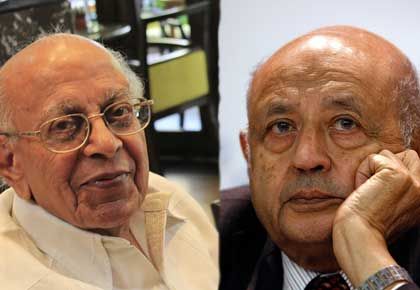 | « Back to article | Print this article |
Ambassador Natarajan Krishnan and Ambassador Shankar Bajpai helped shape Indian foreign policy at a glorious, but difficult, time in history, recalls Ambassador T P Sreenivasan.
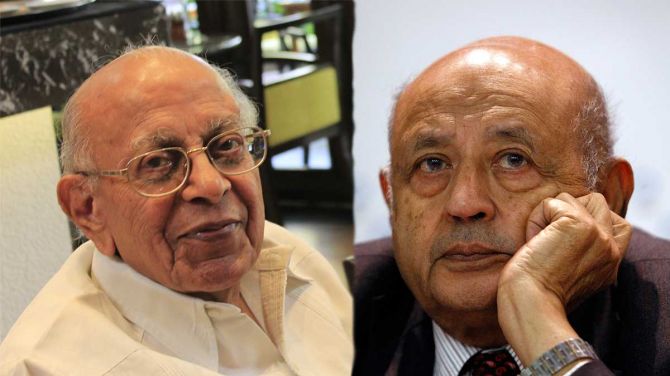
India lost two of its most brilliant diplomats within a week.
Natarajan Krishnan of the IFS 1951 batch and Shankar Bajpai of the IFS 1952 batch were two of the senior-most officers when they passed away recently and their careers should be celebrated even as we mourn their loss.
Perhaps, more by chance than by careful career planning, they followed two different career paths, one multilateral and the other bilateral.
Both reached the pinnacles of their respective careers; Krishnan headed the missions to the UN in Geneva and New York and Bajpai led the missions in Islamabad, Beijing and Washington.
Both of them also served in the ministry of external affairs at very high levels.
It was partly their own personal preferences that kept them in New York and Washington and not in Delhi at the head of the ministry.
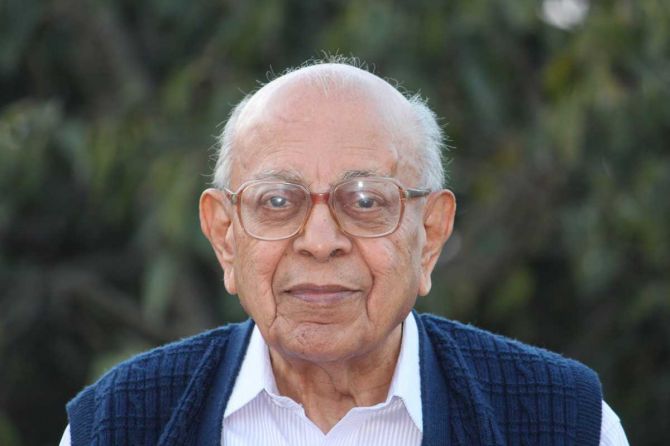
Both Krishnan and Bajpai remained active for many years after retirement, Bajpai longer than Krishnan as the latter shifted out to Bangalore.
Krishnan headed the Africa Fund as the prime minister's special envoy and also became the dean of international relations at the Central University in Pondicherry, apart from associating with various think-tanks.
Prime Minister Narasimha Rao wanted Krishnan to go as ambassador to Washington, but more than him, his wife vetoed it as she had enough of diplomatic parties.
"I cannot imagine frying samosas for another three years," she told me.
A 'secret' meeting he had with some American diplomats on nuclear issues at the prime minister's behest in London had to be abandoned as the press came to know of it.
At that time, consultations with the US on nuclear matters was suspect in the eyes of the public.
Krishnan did not publish much and remained anonymous in the evening years of his life.
When I met the Krishnans last in Bengaluru a year ago, I noticed that they were aging gracefully.
They were at peace with each other and amused themselves reading the IFS mail, without responding, apart from spending time with the children.
It was hard to find pictures of him on the Internet, except for a black and white picture of his presenting credentials to then UN secretary-general Kurt Waldheim.
The only time he hit the headlines in Bengaluru was when he joined eight former Bengaluru-based ambassadors, who asked the government to present 'a full picture' to the public of where the country is heading vis-a-vis the India-US civilian nuclear cooperation agreement by setting aside its 'policy of reticence'.
'Given the sharp divergence of opinion on this landmark agreement and the strong passion that it has generated in the country, the very least that the Indian government could do, before finalising the terms of implementing this agreement, is to present a full picture to the Indian public of where we are heading,' they said.
Bajpai, on the other hand, was in the limelight till the very end. He taught at various universities in the US and he was a sought after speaker around the world.
He chaired the National Security Advisory Board and successive prime ministers sought his sage advice.
He wrote profusely in his elegant, but complex English language with several punctuation marks to pack multiple ideas into the same sentence.
One of the causes he espoused was the movement for 'Global Zero', an initiative for a nuclear weapon-free world in 2008.
The last time he wrote to me was in 2016, when he read an article of mine in The Hindu that a victory for Donald Trump should not be ruled out.
He was scandalised that I should even think in those terms!
When I replied to him that I did not have a vote and I did not have any power to influence opinion in the US, he said that it was sacrilegious to even think that Trump might win.
Most of his friends were in the Democratic party and he was certain that Hillary Clinton would make it to the presidency.
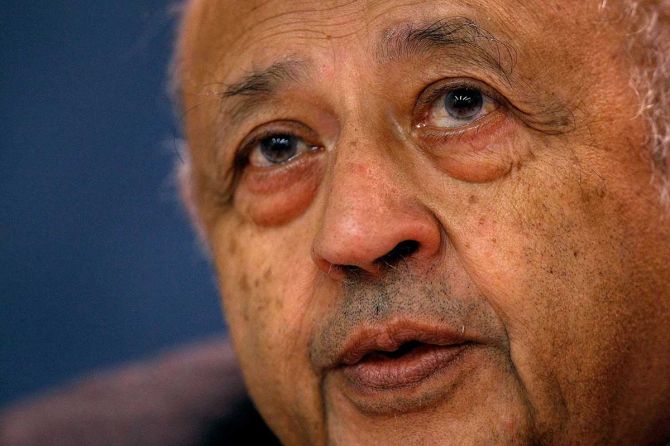
No two individuals could be as different from each other as Krishnan and Bajpai.
Krishnan was short and slim, while Bajpai was a tall, dominating, figure.
They represented the diversity of India and they were unmistakably from the South and the North of India in appearance.
But both were sophisticated in their own way, Krishnan in a quiet way and Bajpai more flamboyantly.
Both of them had a great sense of humour, which made it easy to work with of them.
They both loved music and food, but Bajpai was more demonstrative in his hospitality.
He cooked at least one dish himself at every party and served it with an elaborate explanation of the delicate ingredients.
He also could engage anyone in a conversation on the finest wines.
I worked more with Krishnan than with Bajpai.
As the deputy secretary in the foreign secretary's office, I dealt with both of them, conveying messages back and forth with then foreign secretary Jagat Mehta, who was not easily accessible for officers.
Bajpai would send me notes from Islamabad whenever he sent an important communication to the foreign secretary to ensure that it did not escape Jagat Mehta's attention.
I had occasion to work with him in the ministry as well when he returned to the headquarters.
When I was posted to New York in 1979, it was expected that Krishnan would go to New York, but the post went to Brajesh Mishra and it was only one year later that he came to New York after Brajesh Mishra left the foreign service to become the UN commissioner for Namibia.
The change from Mishra to Krishnan as the permanent representative made a big difference to the mission and India's role in the UN.
Both were highly respected, but Mishra was more feared than loved.
Mishra could be stern and abrupt, while Krishnan was exceedingly polite and patient.
In his conversations with his colleagues and other diplomats, he sounded tentative, with his characteristic "No, no", "I say" etc in between sentences, but that was to draw out the best from the others.
He had a permanent smile on his face and he often burst into laughter.
But he was firm once he made up his mind and pursued the idea with determination.
He had time for even the junior-most diplomats who approached him for advice or clarification of policy.
He was considered the messiah of non-alignment, having learnt his ropes as ambassador to Yugoslavia.
I noticed how the Yugoslavs were eating out of his hand, both in Belgrade and New York.
His elephantine memory and drafting skills made him a master multilateralist.
His ability to juggle with many ideas at the same time till he decided on a final decision was a rare gift.
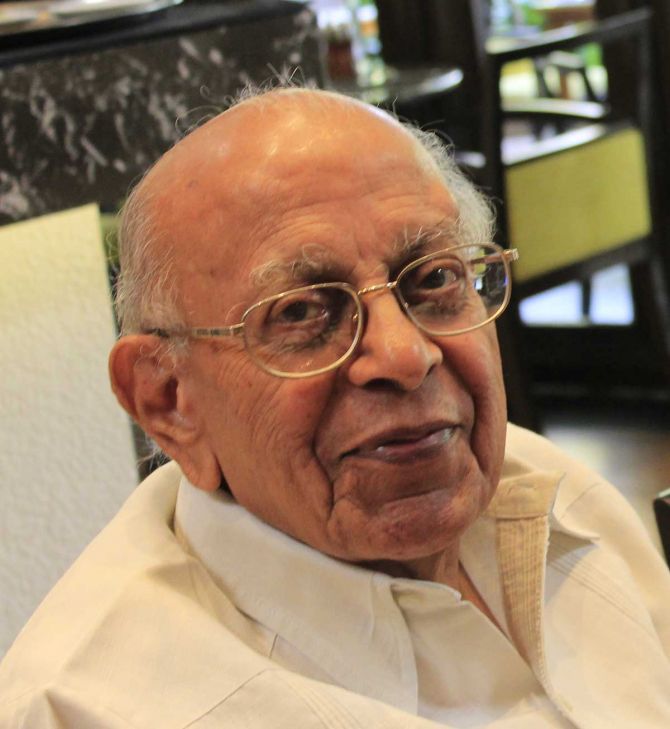
Travelling is one of the blessings of diplomacy and it is when we travel that we get to know our colleagues best.
I travelled with both Krishnan and Bajpai for conferences and bilateral meetings.
Both were equally fascinating and the conversations on long flights with them were a joy.
Krishnan was much more informal than Bajpai, but both of them were considerate to their younger colleagues.
The swiftness with which Krishnan would move around in conference halls talking to delegates to seek breakthroughs and consensus was interesting to watch.
At the Havana NAM summit in 1979, with a difficult minister of external affairs as the leader, his negotiating skills were at his best within our own delegation.
With his excellent contacts among the Arabs and the Africans, he saved Egypt from expulsion from the Movement in Havana.
A hilarious incident took place in Havana when Krishnan allowed us to send our laundry through his room as he was a State guest and we were not.
The trouble arose when Sarita Bali sent her own clothes to his room, making the Cuban maids wonder what the ambassador was up to.
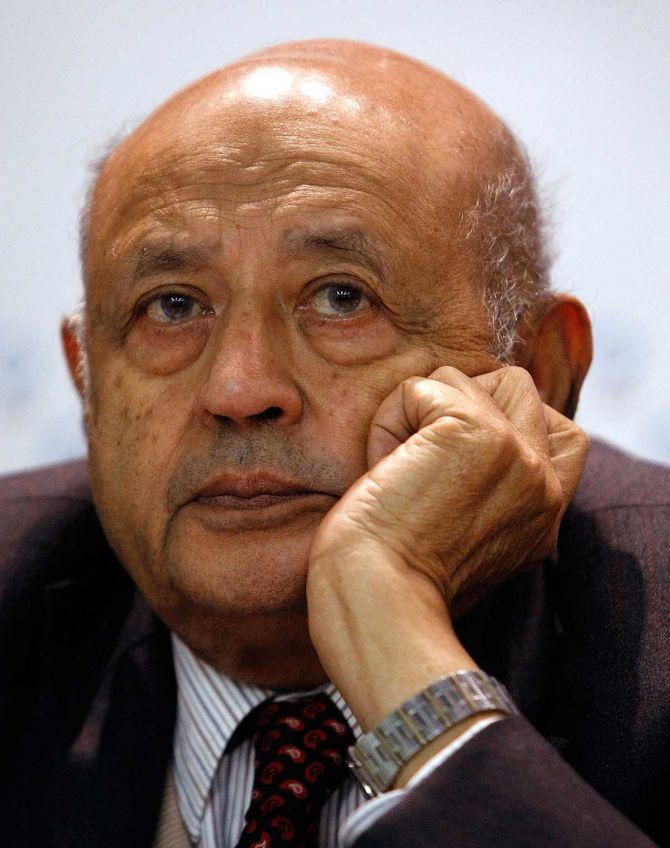
With Bajpai, travelling was a culinary excursion.
He always had a light lunch, but spent the rest of the lunch time studying the menus of all the best restaurants in the city.
Once the day was done, he took me to some of the best places he discovered after careful consideration.
The best was when we got stranded on the island of Curacao, a 'Dutch'/ city in the middle of Latin America.
With no official engagements, we explored the culinary delights of the place with the assistance of an honorary Indian consul general, whom Bajpai located by studying the local telephone book.
I simply had to tag along to relish the exotic cuisine.
At his own home, like at his residence in Gangtok, where we were his guests, he was the picture of perfection as a host.
He was also a fountain of wisdom and knowledge on all matters.
He belonged to the Chanakya school of diplomacy, visualising the strategy and planning his tactics far ahead of his times.
He had many feathers in his diplomatic cap, but his finest hour was the work he did in Sikkim, where conventional diplomacy could not have worked.
Both Krishnan and Bajpai became legends in their own life time in India and abroad, but it will be difficult to fathom their contribution to the nebulous world of diplomacy.
The legacy that they left behind may remain in the archives of the ministry of external affairs till a future historian makes a study of their careers in detail.
They helped shape Indian foreign policy at a glorious, but difficult, time in history.
Neither of them seems to have left behind their service stories, but their writings and observations of their colleagues will remain testimony to their celebrated lives and work.
T P Sreenivasan, (IFS 1967), is a former Ambassador of India and Governor for India of the IAEA.
Ambassador Sreenivasan is a frequent contributor to Rediff.com and his earlier columns can be read here.
Feature Presentation: Ashish Narsale/Rediff.com
